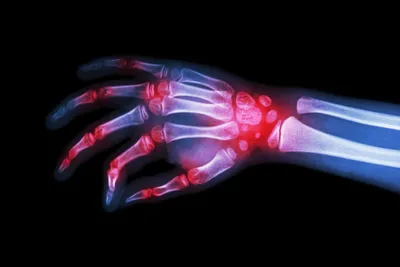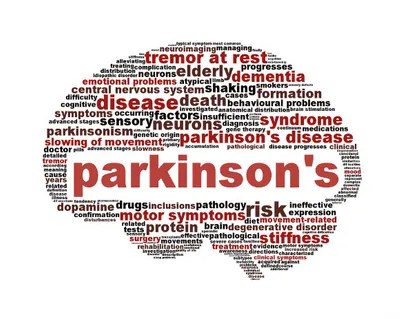Lyme disease can be a very serious infectious disease that is caused by the bite of a Lyme-carrying tick (which is sometimes too small to easily detect). While the problem is caused by such a small source, the symptoms that result can be huge, and sometimes can lead to an incorrect diagnosis.
What can complicate a diagnosis for Lyme (especially if there isn’t the tell-tale bull’s eye circular rash) is that it often doesn’t show up during early blood tests, which can lead medical professionals in different directions. Here are 7 of the most common diseases that Lyme disease is often mistaken for due to similar symptoms…
1. Arthritis
Arthritis is a varied condition of the joints (there are apparently more than 100 types) that can affect people at any age. According to the Arthritis Foundation, it affects more than 53 million people in the U.S. alone.
So it’s not really any surprise that the joint stiffness and pain that can come with Lyme disease can be mistaken for rheumatoid arthritis, which is actually an autoimmune disease (when your own body attacks the lining of the joints).
2. Chronic Fatigue Syndrome
Lyme disease has a varied list of symptoms. One of those symptoms is feeling tired, or fatigued, but not just any kind of tired, the kind of tired that seems to be unaffected by getting more rest. It can be so bad in some cases that your muscles just refuse to work.
Compare this to Chronic Fatigue Syndrome, a medical condition with no known cause that can come with prolonged exhaustion and soreness. Like the tiredness that comes with Lyme, the fatigue doesn’t seem to go away after a nap or by cutting back on activity.
3. Flu
Symptoms of Lyme can include muscle aches, headache, tiredness and fever…sound familiar? Yes, you guessed right, those are the same symptoms that you may experience when you’ve got the flu, notes Healthline.
However, as the source points out, the flu-like symptoms of Lyme can advance to a stiff neck, more severe headaches, and dizziness. Left untreated, Lyme can cause serious nervous systems disorders (such as Bell’s Palsy that paralyzes facial muscles) as well as heart and liver problems.
4. Parkinson’s Disease
Parkinson’s disease is progressive and causes neurological problems such as tremors of the hands. As a summary posted on the U.S. National Library of Medicine website points out, neurological symptoms can occur in about 10 percent of Lyme cases in the “chronic stage” (months or even years following the initial infection).
The summary outlines some alarming conditions attached to chronic Lyme infections, such as encephalomyelitis (inflammation of the brain), epileptic crises (seizures), cognitive impairment (loss of motor functions), and peripheral neuropathy (weakness and numbness in your extremities).
5. Depression
Clinical depression can be categorized as prolonged feelings of sadness and hopelessness that often don’t have an obvious trigger. While Lyme disease causes a wide range of physical symptoms, it can also affect the sufferer mentally.
Psychology Today offers an article that explains depression and anxiety can actually be traced back to a tick-borne illness. Keep in mind that Lyme is a “multisystemic illness”, so if you have no other symptoms other than depression, then it may be just that, and should be treated accordingly.
6. Lupus
Lupus is another autoimmune disease that can be sometimes be confused for Lyme during certain stages. Livestrong.com notes that joint inflammation is a shared symptom of both lupus and Lyme, where joints can become swollen and painful in both cases.
Other common conditions associated with both include fever, fatigue, and headaches, according to Livestrong. This source explains, “establishing the correct diagnosis involves examining the evolution of the symptoms, looking for distinguishing characteristics of the respective illnesses, and reviewing laboratory test results.”
7. Multiple Sclerosis
Multiple Sclerosis, or MS as it is commonly known is a degenerative nervous system disease that affects more than an estimated 2.3 million people worldwide. MS can cause some unique symptoms such as blurred vision and burning/itchy sensations that are common with Lyme disease sufferers.
The National Multiple Sclerosis Society also explains that Lyme can look similar to MS even in MRI scans. The main distinction is that while there is proven no cure for MS, Lyme disease often responds well to antibiotics when treated early according to the society.










